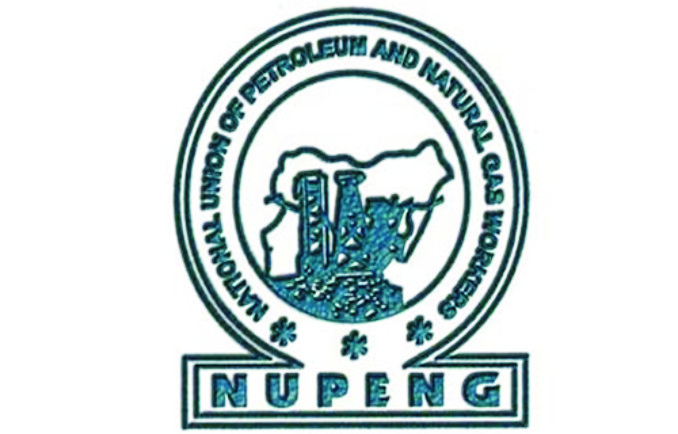Oil & Energy
NUPENG Tasks NASS On PIB

The National Union of Petroleum and Natural Gas Workers (NUPENG), has called on the 9th National Assembly (NASS) to give priority attention to the passage of the Petroleum Industry Bill (PIB) so as to properly regulate and liberalise the Nigeria oil and gas industry.
The call was part of a communique issued after a training programme organised by the union in Port Harcourt, recently.
According to the union, when the PIB is passed into law and fully implemented ,it would open the oil and gas subsector for investors and increase job creation.
The communique which was signed by the unions chairman, Port Harcourt branch, zonal council of NUPENG, Comrade Mina Samuel, restated the commitment of the union towards addressing issues of casualisation and unionisation among its members.
The communique which read in part declared that; “We condemn the issues of short term contract that is affecting unionisation and the rights of workers to freely organise and bargain collectively at variance with international labour organization and other labour legislations in Nigeria. “Contracts should be regulated among the IOCS for at least five years plus one year extension to allow proper planning and engagement on matters affecting work era condition of service.”
The union also emphasised the need for the use of dialogue as tool of engagement in industrial disputes, and called on all relevant stakeholders in the oil and gas sector to ensure that, “the core jobs of contracting and the principal companies are not outsourced.
Taneh Beemene
Oil & Energy
Take Concrete Action To Boost Oil Production, FG Tells IOCs

Speaking at the close of a panel session at the just concluded 2026 Nigerian International Energy Summit, the Minister of State for Petroleum Resources (Oil), Senator Heineken Lokpobiri, said the government had created an enabling environment for oil companies to operate effectively.
Lokpobiri stressed that the performance of the petroleum industry is fundamentally tied to the success of upstream operators, noting that the Nigerian economy remains largely dependent on foreign exchange earnings from the sector.
According to him, “I have always maintained that the success of the oil and gas industry is largely dependent on the success of the upstream. From upstream to midstream and downstream, everything is connected. If we do not produce crude oil, there will be nothing to refine and nothing to distribute. Therefore, the success of the petroleum sector begins with the success of the upstream.
“I am also happy with the team I have had the privilege to work with, a community of committed professionals. From the government’s standpoint, it is important to state clearly that there is no discrimination between indigenous producers and other operators.
“You are all companies operating in the same Nigerian space, under the same law. The Petroleum Industry Act (PIA) does not differentiate between local and foreign companies. While you may operate at different scales, you are governed by the same regulations. Our expectation, therefore, is that we will continue to work together, collaborate, and strengthen the upstream sector for the benefit of all Nigerians.”
The minister pledged the federal government’s continued efforts to sustain its support for the industry through reforms, tax incentives and regulatory adjustments aimed at unlocking the sector’s full potential.
“We have provided extensive incentives to unlock the sector’s potential through reforms, tax reliefs and regulatory changes. The question now is: what will you do in return? The government has given a lot.
Now is the time for industry players to reciprocate by investing, producing and delivering results,” he said.
Lokpobiri added that Nigeria’s success in the upstream sector would have positive spillover effects across Africa, while failure would negatively impact the continent’s midstream and downstream segments.
“We have talked enough. This is the time to take concrete actions that will deliver measurable results and transform this industry,” he stated.
It would be noted that Nigeria’s daily average oil production stood at about 1.6 million barrels per day in 2025, a significant shortfall from the budget benchmark of 2.06 million barrels per day.
Oil & Energy
Host Comm.Development: NUPRC Commits To Enforce PIA 2021

Oil & Energy
PETROAN Cautions On Risks Of P’Harcourt Refinery Shutdown

The energy expert further warned that repeated public admissions of incompetence by NNPC leadership risk eroding investor confidence, weakening Nigeria’s energy security framework, and undermining years of policy efforts aimed at domestic refining, price stability, and job creation.
He described as most worrisome the assertion that there is no urgency to restart the Port Harcourt Refinery because the Dangote Refinery is currently meeting Nigeria’s petroleum needs.
“Such a statement is annoying, unacceptable, and indicative of leadership that is not solution-centric,” he said.
The PETROAN National PRO reiterated that Nigeria cannot continue to normalise waste, institutional failure, and retrospective justification of poor decisions stressing that admitting failure is only meaningful when followed by accountability, reforms, and a clear, credible plan to prevent recurrence.
-

 Politics2 days ago
Politics2 days agoAPC Releases Adjusted Timetable For Nationwide Congresses, Convention
-

 Sports5 days ago
Sports5 days agoHammers Beat Burnley To Boost Survival Chances
-

 Business1 day ago
Business1 day agoCustoms Seek Support To Curb Smuggling In Ogun
-
News1 day ago
Police Bust Kidnapping Syndicate In PH
-
Sports1 day ago
DG NIS Wants NSC Board Constituted, Seeks Increased In Funding
-
Sports2 days ago
Falcon Players Prepare For Title Defense
-
Sports1 day ago
NSC Disburses N200m Training Grants To 26 Athletes
-
Sports1 day ago
‘NTF Will Build On Davis Cup Success For Brighter Future’

